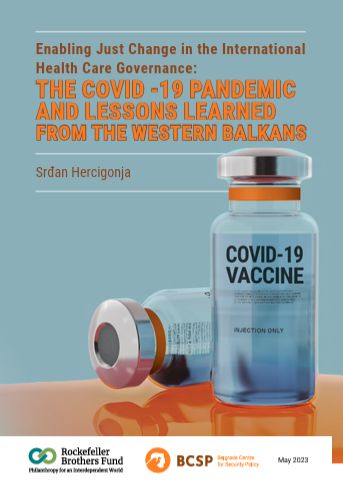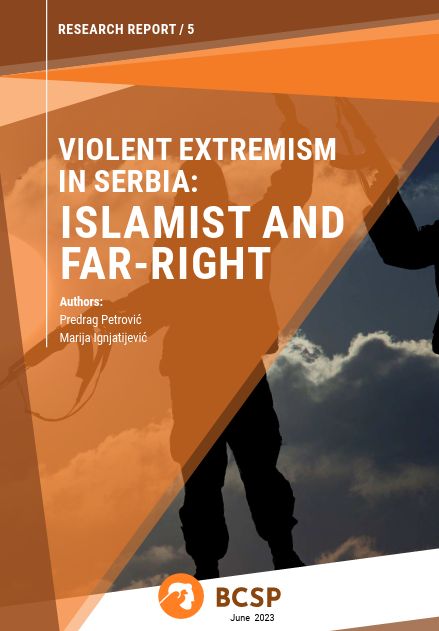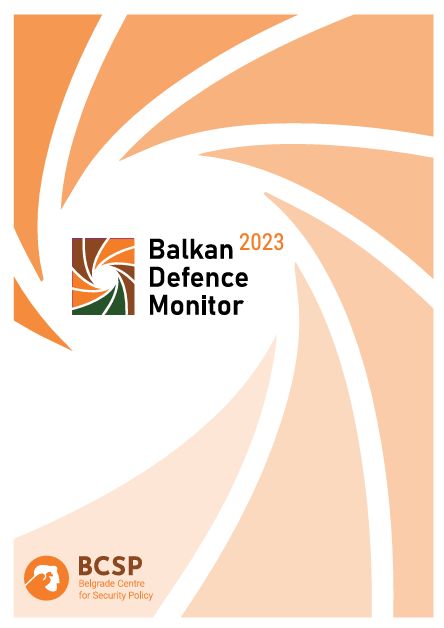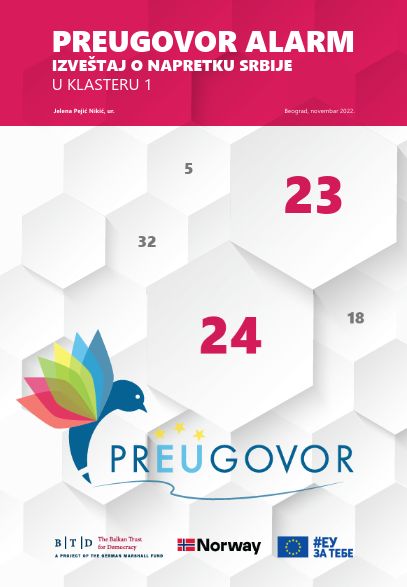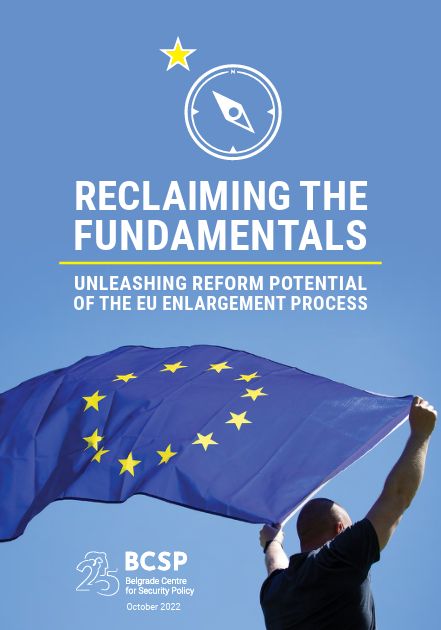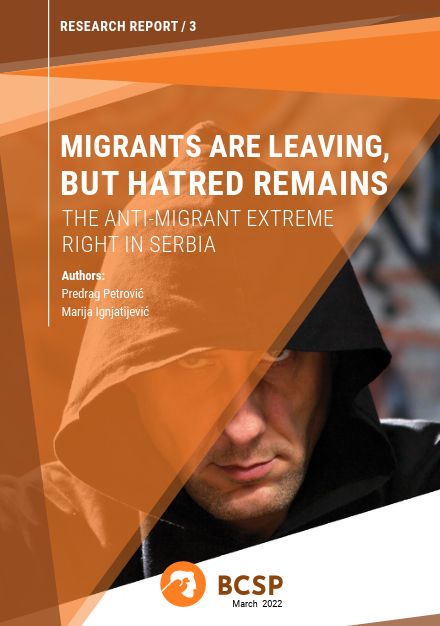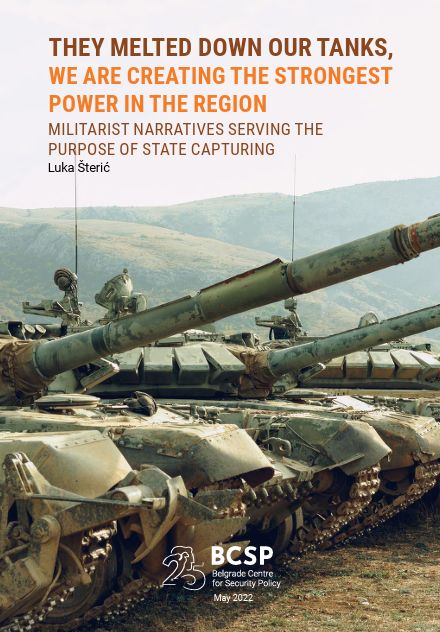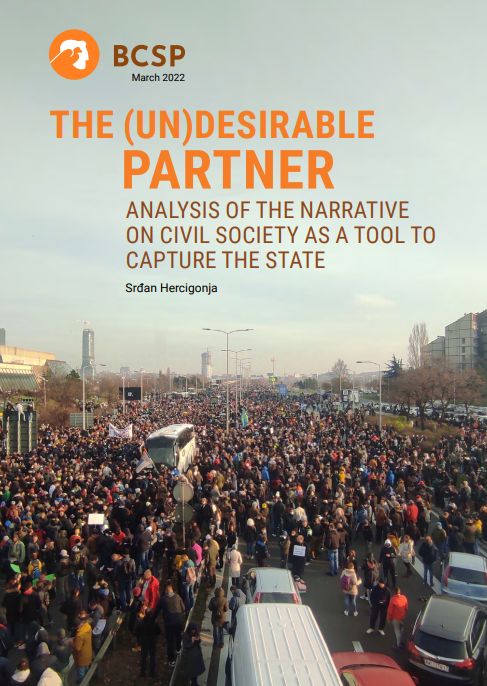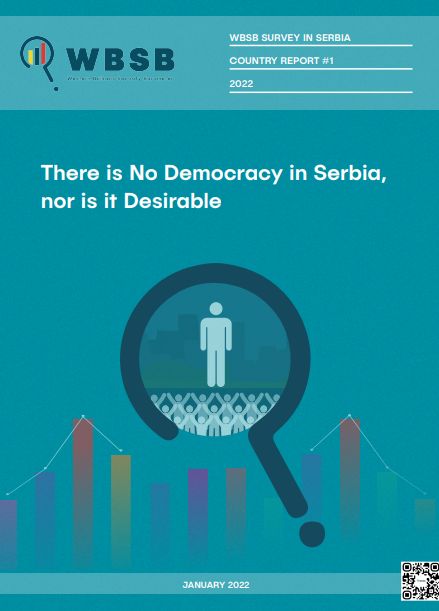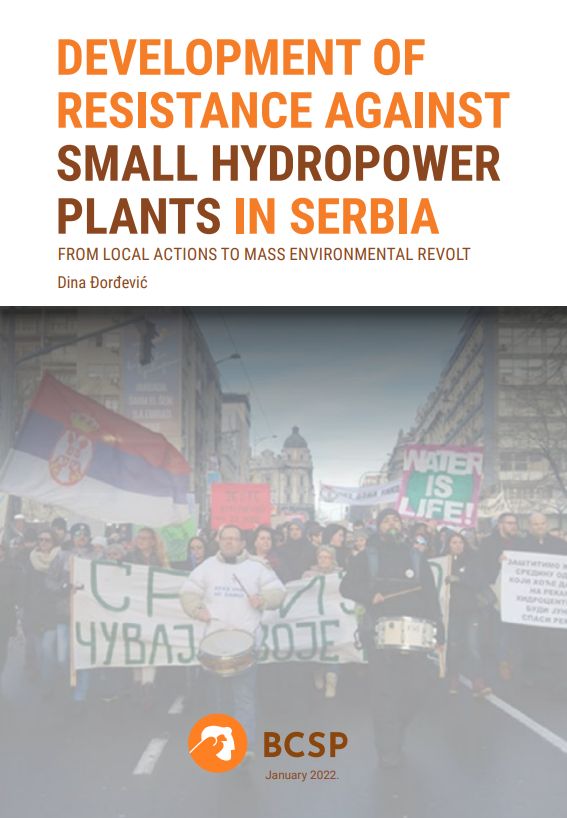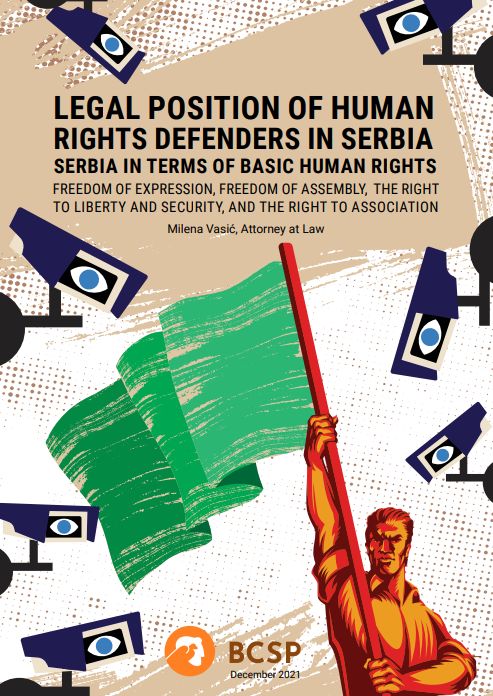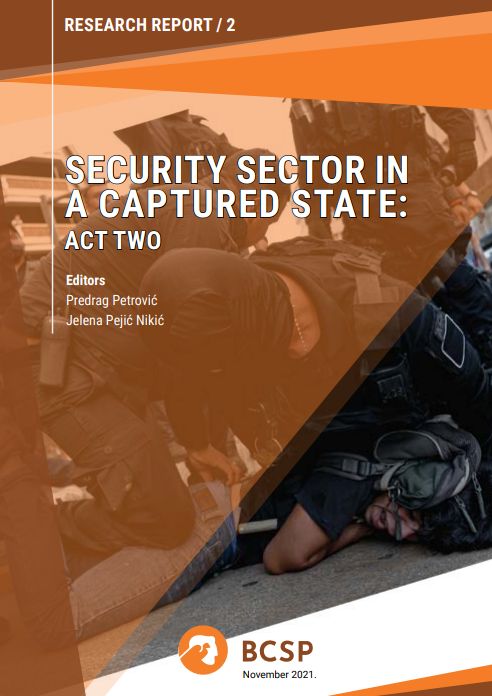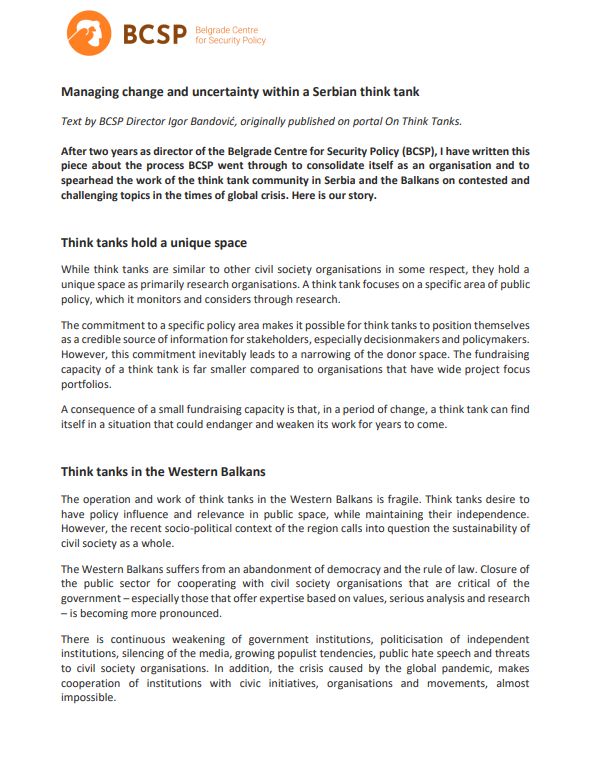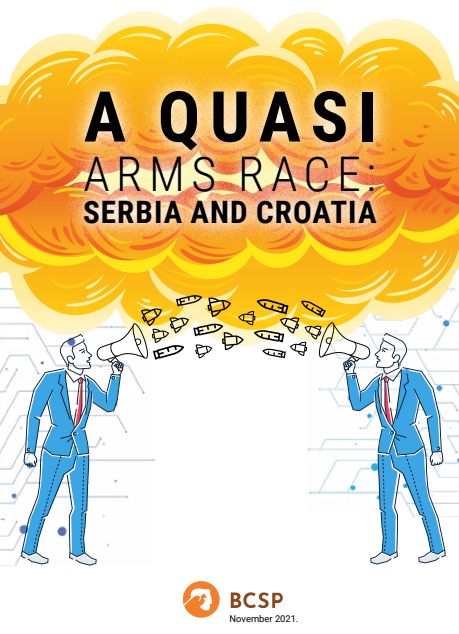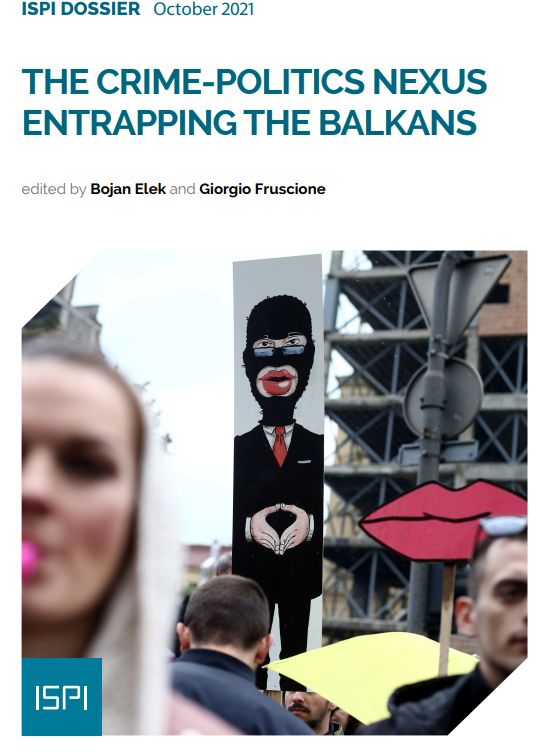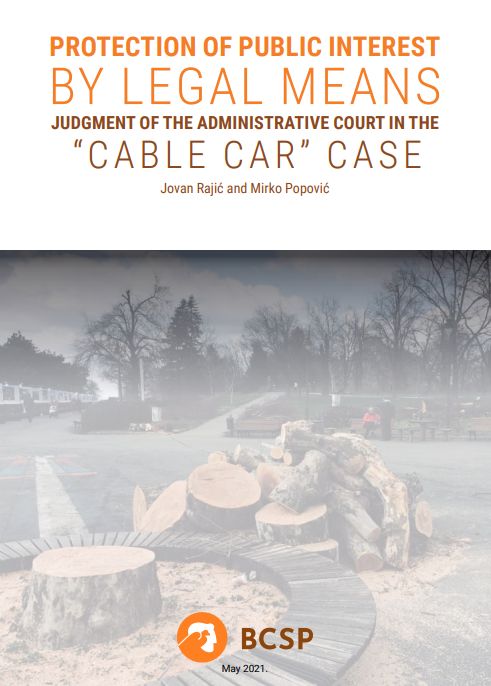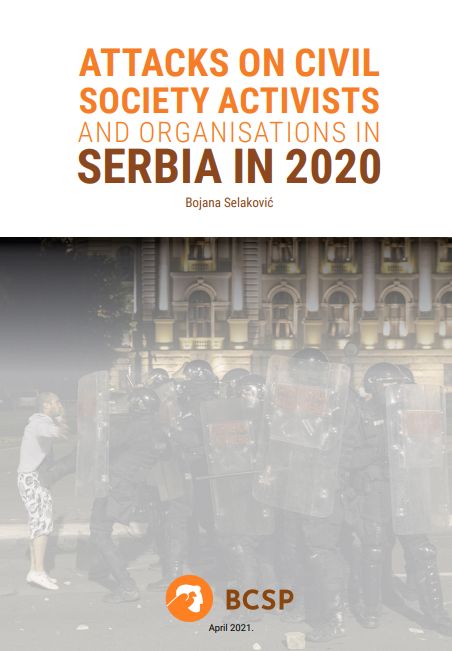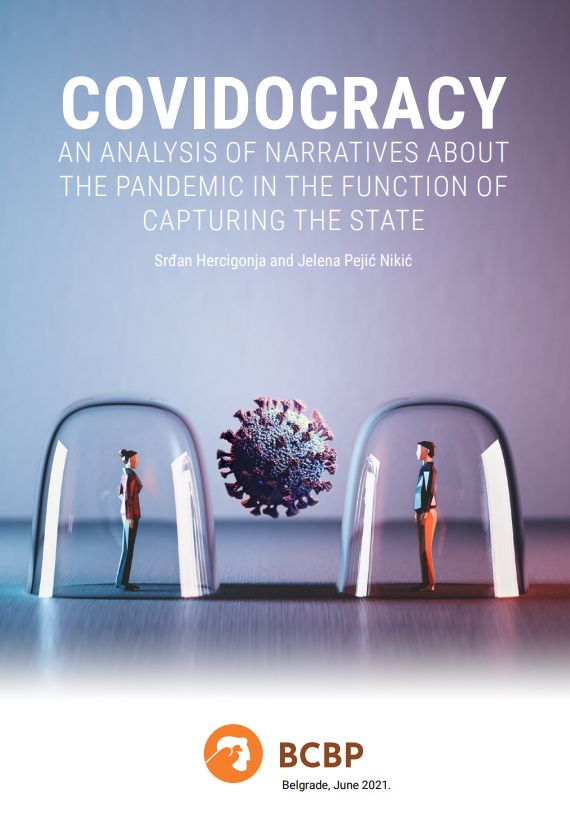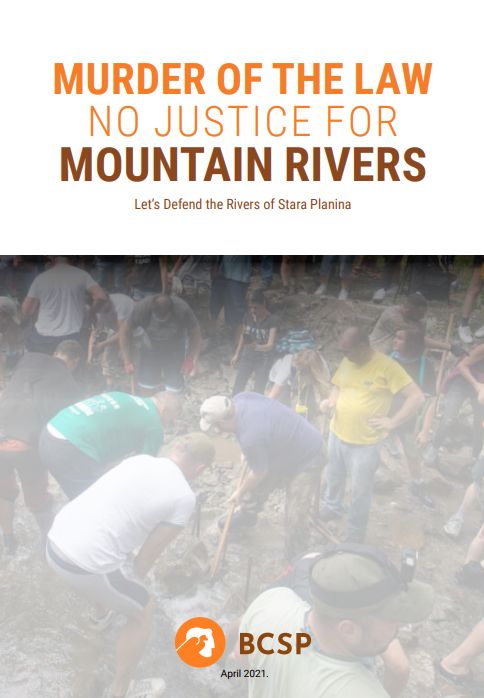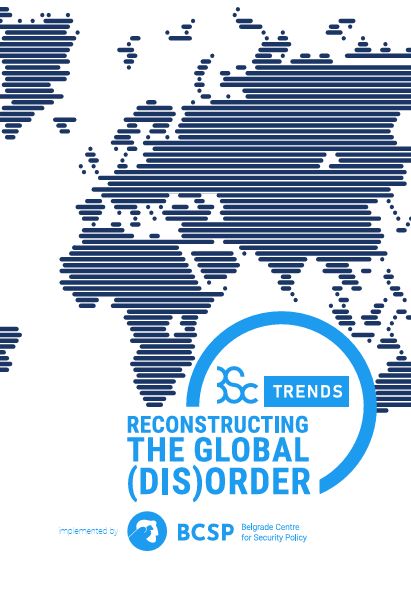
Balkan Defence Monitor 2024
Balkan Defence Monitor 2024
Keywords: European Union; power influence; global order; globalization; geopolitics; Balkans; international relations; EU enlargement; -wing politics; Europe; Ukraine conflict; Middle East
We proudly present you the ‘BSC Trends: Reconstructing the Global (Dis)Order,’ the companion publication to the Belgrade Security Conference 2023, held in Belgrade from October 11th to 13th, 2023. This publication aims to shed light on and discuss, following the style of BSC discussions, the most significant global, regional, and local events, phenomena, and developments that have marked this year. These topics were part of the panel discussions in this year’s BSC conference program.
More...
